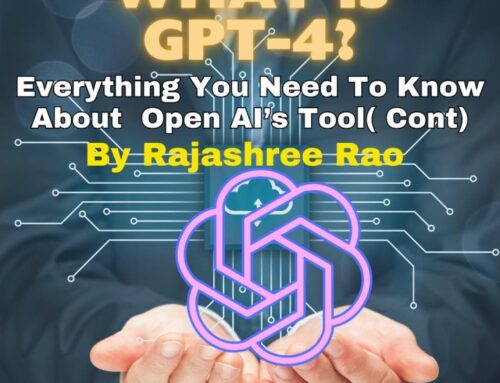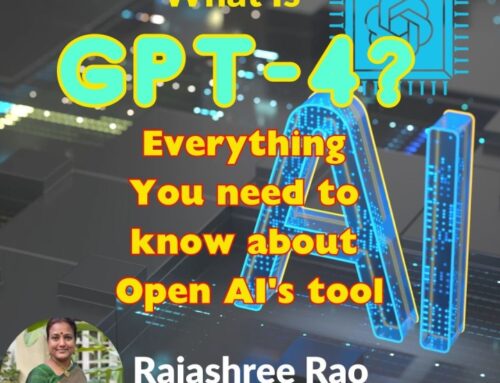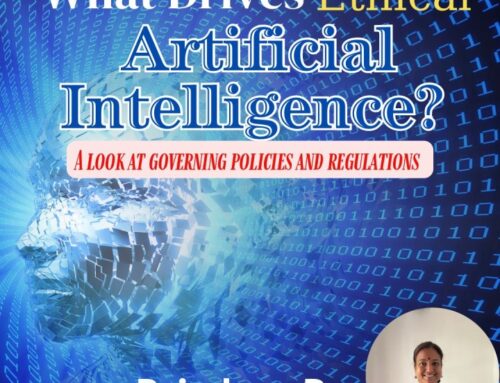An overview of Google’s Deep Mind Artificial Intelligence Technology – The Disruption has begun Part II
What is the goal of DeepMind Technologies? According to their website, their goal is to solve intelligence which they are trying to achieve by combining the best techniques from Machine Learning and Systems Neuroscience to build powerful general-purpose learning algorithms or in other words they want to formalise intelligence find out what is and how it works. The end game is not just to implement this into machines but also to understand the human brain.
Demis explains further, “Attempting to distil intelligence into an algorithmic construct may prove to be the best path to understanding some of the enduring mysteries of our mind.” The key here is that this machine here is general-purpose. How does all this work? – The AI from DeepMind uses a technique called Deep reinforcement learning which makes it very different from other AI’s such as IBM’s Watson or the Primitives theory or the Google Now.
The AIs just mentioned, they were only developed for a predefined purpose and only function within their scope. DeepMind claims that their system is not pre-programmed and it learns from experience using only raw pixels as the data input. According to Demis, “The way they start off training AlphaGo is by showing it a hundred thousand games that strong amateurs played which they downloaded from the internet, and the first initially got AlphaGo to mimic the human player but of course they would like AlphaGo to be stronger than mortal amateurs and compete with top professionals. So, the way they did that after they took that first version, that’s learning to mimic humans play, and they then allow the Go to play itself 30 million times on their servers. Using the reinforcement learning the system determines to improve itself incrementally by avoiding its errors by increasing and enhancing its win rate against older versions of itself.
Post all these games; they end up with a new version that can beat the old version, the original version around 1897. Technically the reinforcement that DeepMind uses is model-free, meaning that it doesn’t need a structure or set of rules to learn. According to MIT, the Google algorithm and not the neural network, in theory, should be able to access external memory in a manner that mimics the short-term memory of the human brain. In a way, it always seems like our brain’s design might be the most efficient way for the creation of local intelligence.
The next is to understand what does the general-purpose term actually mean? Given that the machine learns from more experience and data, it can perform well across a wide variety of tasks straight out of the box. The machine did not have any prior knowledge as to what task it was going to complete. It had to figure out everything only from its own experience.
Hence, what could be the usefulness of the general-purpose AI – According to Denis, the algorithms could be used for things like science, and healthcare for improving the speed of breakthroughs in those areas by helping human experts to achieve more. Similarly, for Smartphone assistance and robotics as possible applications for general AI. Some other applications of such an AI include online customer service, computer vision, finance, general computer science and news publishing and writing.
General-purpose AI actually could be massive. It can be thought of other emerging science much like Newtonian physics laid the groundwork for technology such as rockets a science founded in general purpose digital neural networks that use reinforcement learning could lay the groundwork for unimaginable things in the near future.
The next question is Should we be worried? In the thousands of years of meaningful civilisation, our modern existence right now is an anomaly. We’ve overcome the limits of nature with technology that helps us facilitate such a lifestyle, but AI is different. The reason being AI is the first thing the humans have created that tends to function in a way that we can’t predict. Hence my belief is the fear of the unknown is mostly what drives the hysteria that arises from AI anxiety. However, humans have the inability to perceive exponential change. People for a long time aren’t going to take AI seriously, and progress could be plodding, and suddenly it could overtake our wildest expectations.
One of the methods AI could use to achieve this outcome is by giving itself an ability for self-improvement. Thus following the law of accelerating the returns. Stephen Hawking and Elon Musk have both shown their reservations towards AI, but others like Paul Ellen co-founder of Microsoft has different views. If you can figure about the movie Terminator for a second, there is a possibility that AI could be man’s greatest aide fixing fundamental problems on our planet and allowing us to have technology and infrastructure that could have taken centuries if we tried to figure it out ourselves.
On the other hand, there is a possibility that AI could be malicious and would outwit us, but at this stage, we really don’t know yet. However, at the moment the industry is cautiously optimistic. As for DeepMind one of their conditions after Googe’s acquisition was that they establish an AI ethics board and I think most of us would agree that it is a prudent decision. To sum it all, we might be at a historical point a critical point in AI.
To summarise, the Future could see Deep Neural Learning and General-purpose AI in our smartphones and computers. Some might even say that we have to start thinking of a whole new economy, reason being AI could take over a lot of information-intensive specialised jobs leaving only jobs that are creative or emotional in nature something that AI might never.




